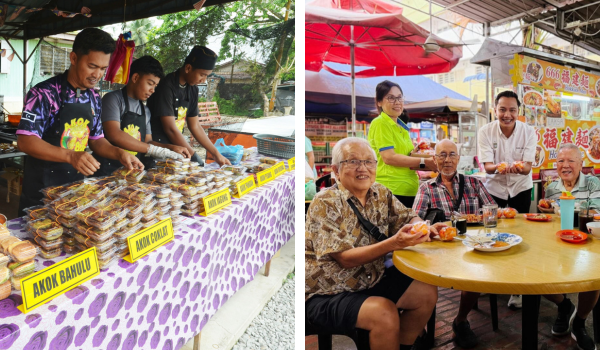
PUTRAJAYA, April 25 – Malaysia was once again given the trust when it was re-elected as a member of the Governing Council of the Statistical Institute for Asia and the Pacific (SIAP) for the term 2025 to 2027.
This was done through a voting process held in conjunction with the 81st session of the United Nations Economic and Social Commission for Asia and the Pacific (ESCAP) in Bangkok, Thailand, which is comprised of 53 countries in the Asia-Pacific region.
Chief Statistician of Malaysia Datuk Seri Dr. Mohd Uzir Mahidin said the election marked Malaysia’s second consecutive term as a member of the council after the term 2023–2025.
“Malaysia received strong support and overwhelming votes from member countries in the Asia and Pacific region.”
“Along with Malaysia, seven other countries have secured a majority vote to fill the eight contested seats, namely China, India, Mongolia, the Philippines, South Korea, Thailand and Pakistan,” said Mohd Uzir in a statement.
The reappointment reflects the international community’s continued recognition and confidence in Malaysia’s active role and significant contribution in strengthening the statistical ecosystem at the regional and global levels, particularly through the leadership of the Department of Statistics Malaysia (DOSM).
It is also seen as opening up a strategic space for Malaysia to continue to expand its cooperation network, strengthen statistical capacity development and contribute more actively to the regional and international statistical agenda.
Malaysia’s reappointment in 2025 also coincides with Malaysia’s role as the Chairman of ASEAN 2025, which carries the theme “Inclusivity and Sustainability”.
Active participation in SIAP will strengthen Malaysia’s role in championing inclusive statistics, driving data-based policies, and supporting sustainable development at the regional level.
Meanwhile, Mohd Uzir will continue to represent the country as a member of the SIAP Governing Council and he expressed Malaysia’s commitment to continue to actively support the SIAP agenda.
Malaysia will also continue to play an important role in strengthening national and regional statistical systems, supporting data-based policies, modernizing statistics through the application of digital transformation, big data and artificial intelligence (AI), as well as developing skilled human capital through the Malaysian Statistical Training Institute (ILSM).
“On behalf of the government and people of Malaysia, I would like to express my congratulations to all the elected council members and my deepest appreciation to the member states for their support and trust in Malaysia.”
“Malaysia is committed to continuing to work closely with all council members in strengthening inclusive and sustainable statistical development, in line with the Sustainable Development Goals (SDGs), enhancing data governance, and expanding strategic cooperation at the international level through various SIAP initiatives,” the statement added.
During the previous term, Malaysia not only played a role as a member of the SIAP Governing Council, but was also given the mandate to chair the 18th and 19th Governing Council Meetings for two consecutive years (2022 and 2023).
In 2023, Malaysia also hosted the 19th Session of the Governing Council of SIAP as well as the 18th Management Seminar for the Heads of National Statistical Offices in Asia and the Pacific: Fundamental Principles of Official Statistics (FPOS) which was held in Kuala Lumpur.
In addition, DOSM also organised a Training of Trainers Workshop on Quality of Statistics for Sustainable Development Goals (SDGs) at the Malaysian Statistics Training Institute (ILSM), Perak in collaboration with SIAP and the United Nations Statistics Division (UNSD).
DOSM also actively contributed to various ESCAP and SIAP initiatives in efforts to advance regional statistical capacity development, including through the provision of technical expertise, the development of official statistics guidelines, as well as the implementation of various trainings and workshops at the regional level.



